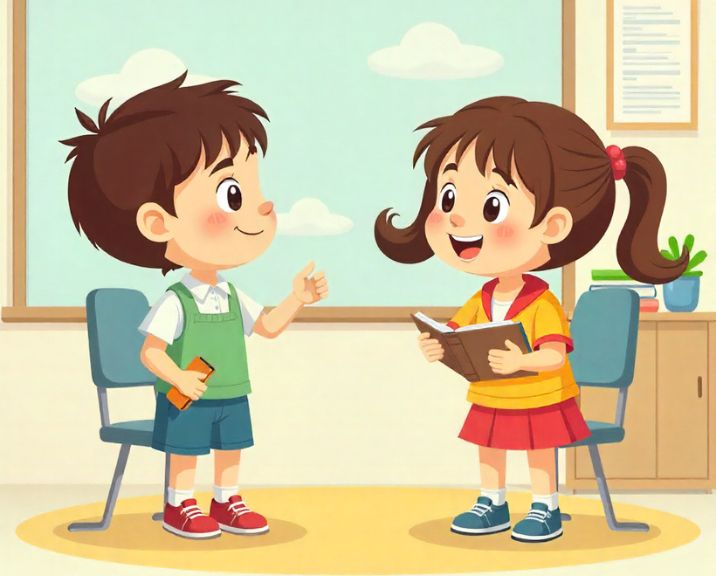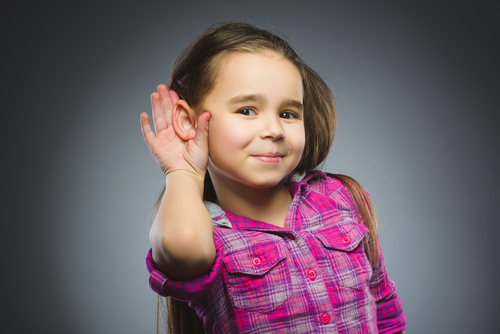
Ways of being a good listener
Have you ever experienced that feeling of being zoned out while someone else is speaking, or observed the other person becoming distracted while you were trying to make a point? The art of listening seems to have lost some of its charm in today’s fast-paced, chaotic, and predominantly digital conversations.
In today’s fast-moving world, genuine listening has become one of the rarest yet most powerful skills. Whether at home, in classrooms, or workplaces, being a good listener builds trust, reduces misunderstandings, and strengthens relationships. For children, learning this skill early helps them grow into more empathetic, thoughtful, and confident individuals.
“I like to listen. I have learned a great deal from listening carefully. Most people never listen.” – Ernest Hemingway
Listening is often considered something more important than speaking itself. It is seen as an act of empathy. When you put yourself in someone’s shoes and attempt to view the situation from their perspective instead of just waiting to prove your point or giving some solid advice, that is what being a good listener really is. Renowned schools of the country and top 10 schools in Delhi NCR are practicing these among children from an early age. Here are some ways you can improve your listening game and
At The Manthan School, educators emphasize listening as a core life skill. Classroom discussions, storytelling sessions, and collaborative activities all encourage children to listen carefully, respond thoughtfully, and value the perspectives of others.
How To Be A Good Listener
Pay attention
The better you listen to other people, the better they will listen to you. Paying attention to another person’s speech is important to building deeper and more trustworthy connections. You must indulge your energy and focus on understanding the other person’s situation or viewpoint in order to fully comprehend their perspective and add value. Even if a value addition isn’t required, paying attention will reassure the other person that they have someone who they can lean on.
Paying attention also means showing genuine curiosity about what the other person is saying. Maintaining eye contact, nodding, or giving small verbal affirmations like “I see” or “That makes sense” assures the speaker that they are being heard and valued. These small actions go a long way in nurturing healthy communication habits among children and adults alike.
No pre-decided agendas
If you enter a discussion with the purpose of understanding the other person devoid of any judgment, people will open up to you easily and share things more freely. It is important to view the situation from the other person’s eyes without forming an opinion in advance or making premature judgments about their actions or opinions. Being an empathetic listener will instill a sense of faith in the other person as they will trust you to respect what they say and mean.
Ask questions
When you listen with complete focus, there are bound to be questions. But in this case, it’s not easy to read someone’s mind just from their words. So, when you feel an impulse to assume things, stop and ask questions. Be it open-ended or specific to the situation, asking questions is a good way to deeply understand challenges and emotions.
Asking meaningful questions also encourages children to think critically. It teaches them not only to understand others better but also to reflect on their own feelings and thoughts. Teachers at The Manthan School use interactive discussions and peer-learning activities to develop these questioning and listening habits naturally in students.
Use body language
Using body language or simply showing that you are listening is not something that comes naturally to people. Body language has a very important part to play in a conversation. It is an aspect of non-verbal communication that adds energy to a conversation. A simple nod or leaning in to hear someone shows your interest and intent in their idea or opinion. Even if you are listening intently, it is important to show people that you are listening to them.
Body language doesn’t just help in personal conversations but also in group interactions. For example, when children participate in group projects or presentations, showing that they are actively listening makes others feel respected and encourages teamwork. These small behavioral cues create a more inclusive and positive learning environment.
Conclusion
Listening is something that is gradually becoming a rare skill among people. Some of the best schools in Greater Noida West are focussing on listening skills while educating the young ones. Not many people pause to listen to other people, be non-judgemental or bring their own agendas to the conversation. If you want to become a better listener, practice these approaches and you’ll surely learn a thing or two the next time you have a conversation.
At The Manthan School, one of the best schools in Greater Noida West, communication and listening go hand in hand. By developing these life skills early, students not only excel academically but also learn how to build stronger connections with peers, teachers, and family. Listening with empathy is not just a communication tool it’s a foundation for emotional intelligence and lifelong success.

